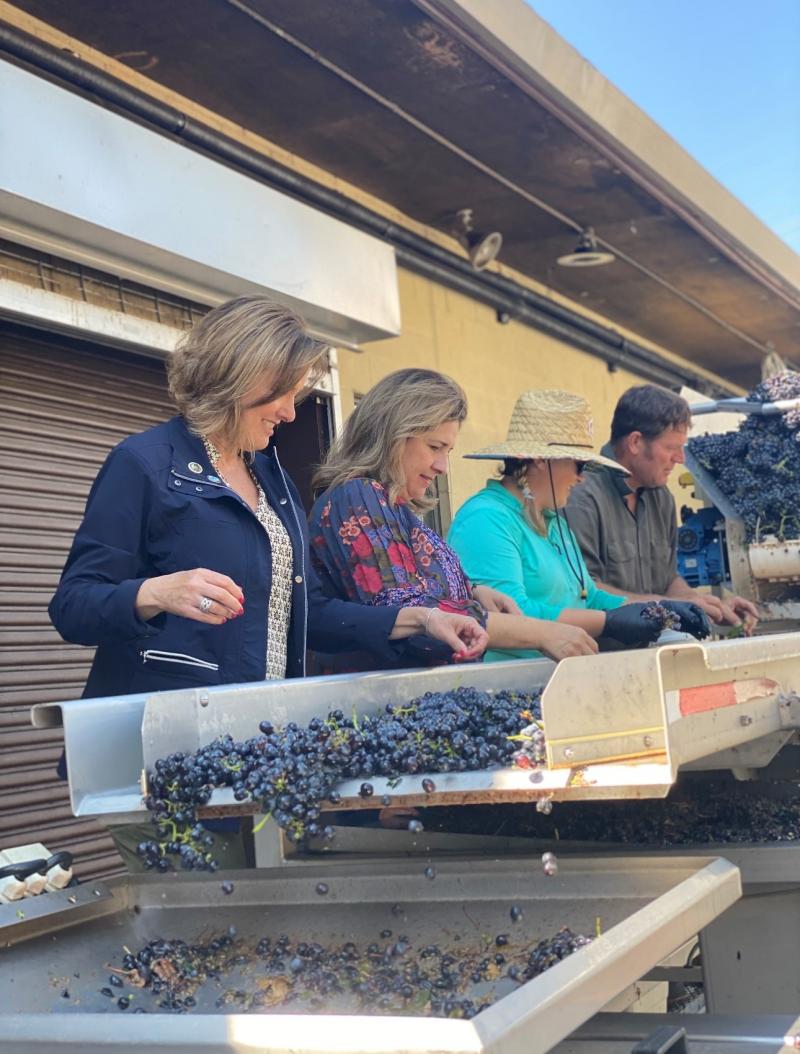Uncorking California's Winery Insurance Crisis

By: Senator Marie Alvarado-Gil
It’s no secret recent devastating wildfires in California have changed the face of many industries, most egregiously impacting the wine industry.
California wine growers and producers are currently experiencing a winery insurance crisis as carriers are choosing to accept fewer clients or leaving the state entirely. This unprecedented change comes after several large-scale wildfires destroyed wineries across Northern California; most notably, the 2017 Tubbs Fire and the 2020 LNU Lightning Complex. Not only is insurance coverage for wineries sparse, but premiums have skyrocketed leaving many wineries across our region underinsured or on the brink of becoming wholly uninsured.
As part of my commitment to restoring a fair and balanced insurance market in California, I became a member of the Senate Select Committee on California’s Wine Industry.
I sat on a recent informational hearing and was immediately struck by the story shared from one of the speakers, Schatzi Throckmorton. Schatzi serves as General Manager of Behrens Family Winery in St. Helena, and sits on the board of the Napa valley Vintners. With nearly two decades of viticulture experience under her belt, Schatzi painted a grim picture for the future of many family operated wineries in the wake of the insurance crisis. Schatzi specifically noted her insurance rate more than doubled after the 2017 Tubbs Fire, and it has now become the fourth largest expense for her winery, and many others across the state. Obtaining decent insurance plans is becoming unsustainable for much of California’s wine industry, an alarming realization as the state is the fourth largest wine producer globally, accounting for 90% of the nation’s wine production.
My district has over 150 wineries, each one serving as more than just a business, but as lifelines of communities that provide economic stability to countless families and regions including Amador, Calaveras, El Dorado, and Stanislaus counties. Lexi Boeger, whose family owns Boeger Winery in El Dorado County, attests to the grim reality of sky high insurance rates that are now threatening generations of vintner work.
The wine industry advisor and agriculture community liaison said, “Family wineries are family farms. The new reality of California wildfires has already critically impacted the wine industry due to lost crops and spoiled wine from smoke taint.” She added, “When your insurance rates triple at a minimum and your coverage decreases to less than your assets are worth you just have to wonder how long you're going to last until there's some relief.”
As a resident of Amador County, I am privileged to be the voice of many rural communities in my district and it is my commitment and goal to ensure each one of these wineries is able to meet, and quite frankly, surpass their bottom line.
I, like many others in my district, am a customer of California’s FAIR Plan. I live in a rural area that is susceptible to wildfires. Although the FAIR Plan plays an integral role in providing insurance access to those who are located in high-risk areas and cannot obtain private insurance coverage, it falls short of providing comprehensive protection when it is needed the most. If this trend continues, I can confidently say it will set the stage for a broader, more catastrophic economic crisis in the state.
We must institute a new insurance model that will work for commercial and residential properties that are no longer accepted by private insurance carriers. I have implored the state’s Insurance Commissioner, Ricardo Lara, to act urgently on this crisis and swiftly put necessary measures in place to reform the insurance market. I am also actively speaking with the California Wine Growers Association and a multitude of vintner associations across my district to enact the changes needed for our wineries to be protected and thrive. I am calling on a fair insurance market to provide more than just financial security; it must also safeguard the rich heritage and traditions these wineries represent in their region.